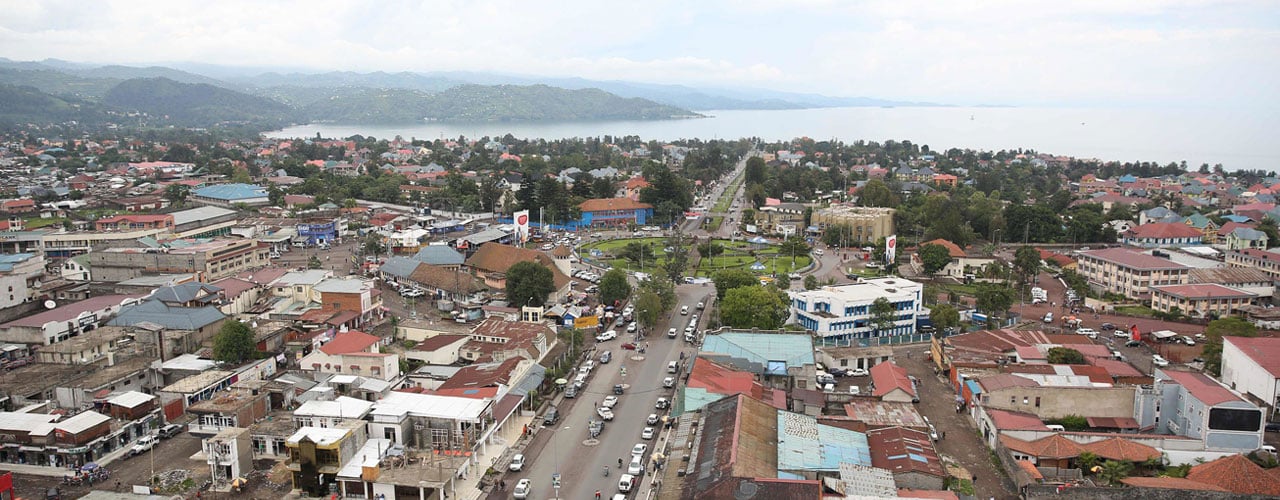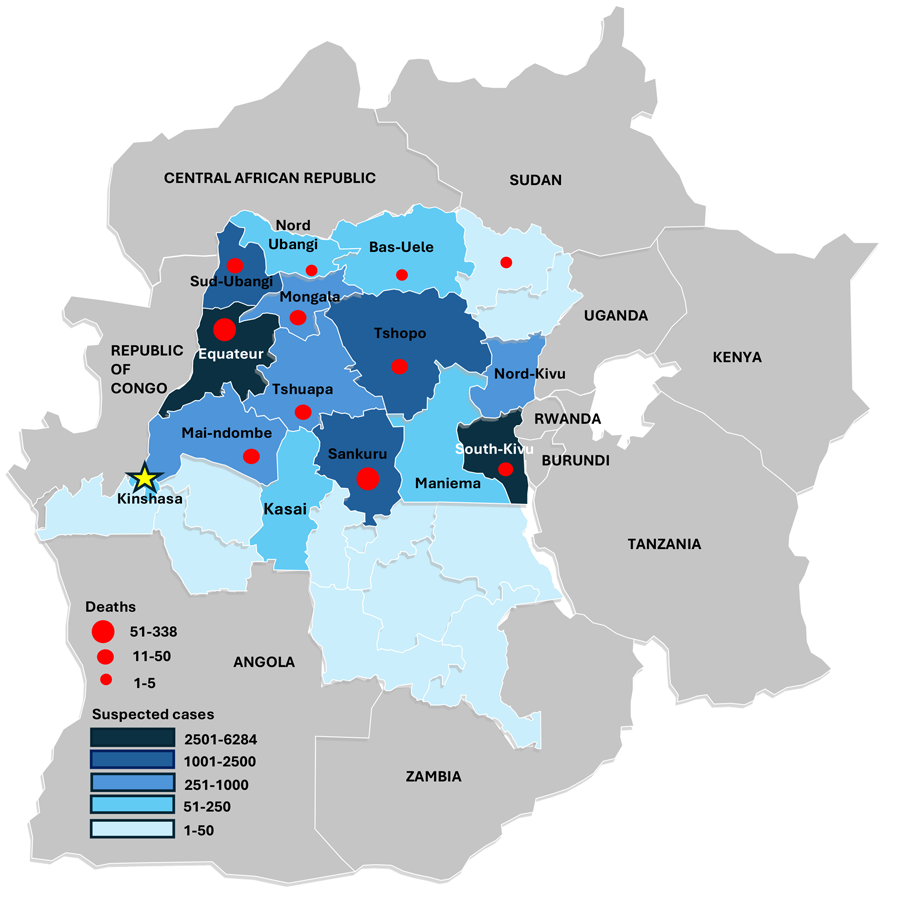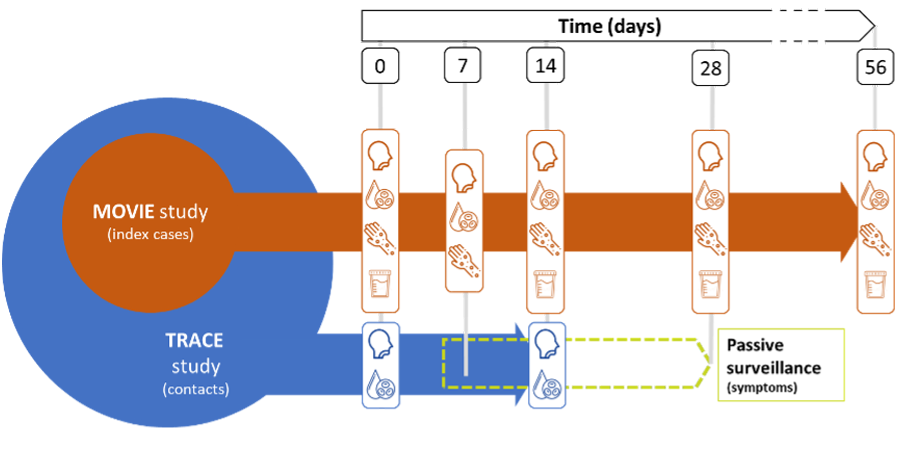
Goma and Lake Kivu in 2015. Credit: MONUSCO photos via Wikimedia Commons
MOVIE-TRACE
The MOVIE-TRACE project aims to improve our understanding of the epidemiology of MPOX in Africa.
The MOVIE Study investigates the dynamics of Mpox virus (MPXV) infection across diverse populations, focusing on viral kinetics and severity in both children and adults.
The study will be conducted in the Democratic Republic of Congo though a collaboration of academics in the UK, DRC, and Spain and is funded by the EDCTP.
The project will combine both a prospective observational study of patients with MPOX and a contact-tracing exercise. Through these studies we seek to inform public health strategies and improve care for patients with MPOX globally.
Recent updates
Events
Newsletter
Contact us
The aim of the MOVIE-TRACE Study is to provide critical insights into the dynamics of MPXV viral clearance and person-to-person transmission in the Democratic Republic of Congo (DRC).
Objective 1 (MOVIE Study): Understanding MPXV Viral Clearance in Mpox Patients
- To address the gap in knowledge about the dynamics of viral clearance in individuals infected with clade-I MPXV, including children and pregnant women.
- To determine the optimal duration of isolation protocols and guide clinical management practices effectively.
- To provide essential insights into the kinetics of MPXV elimination across various body compartments, aiding evidence-based isolation and clinical strategies.
Objective 2 (TRACE Study): Evaluating Transmission Dynamics of MPXV in Mpox Cases and Contacts
- To evaluate transmission dynamics of clade-I MPXV within Mpox-affected communities.
- To determine the Secondary Attack Rate (SAR) in Mpox cases and their contacts, assessing host susceptibility.
- To identify risk factors associated with further transmission and assess the effectiveness of existing control measures, informing vaccination strategies and interventions.

Simultaneous outbreaks of MPOX are occurring in both the western provinces of the Democratic Republic of Congo, where the disease has been reported for decades, and in the eastern provinces where there is now an ongoing large outbreak.
Recent updates
Events
Newsletter
Contact us

Michael
Marks
Professor of Medicine

Deborah
Watson-Jones
Professor of Clinical Epidemiology

Emma
Thomson
Clinical Professor in Emerging Viruses

Kasonia
Kambale
Trial Manager
Oriol Mitjà
Associate Professor (Germans Trias Research Institute) / head of the STI and Skin NTD Unit of the Germans Trias i Pujol University Hospital
Camila Beiras
post-doctoral research scientist (STI and Skin NTD Unit of the Fight AIDS) / Infectious Diseases Foundation / Germans Trias i Pujol University Hospital
Hugo Kavunga
Senior Researcher
Brian Willett
Professor of Viral Immunology
Recent updates
Events
Newsletter
Contact us
The overall design of the project combines 1) identification and follow-up of Mpox index cases (MOVIE) to understand viral kinetics and duration of infectivity and 2) identification of close contacts of these index cases (TRACE) to understand Secondary Attack Rates (SAR) and determinants of transmission.

Recent updates
Events
Newsletter
Contact us
London School of Hygiene & Tropical Medicine (LSHTM)
Founded in 1899, LSHTM is a leading public health university located in London, UK. It specializes in public and global health, offering a range of programs that integrate laboratory sciences, clinical research, social sciences, and population health. The institution is renowned for its diverse international community and its commitment to improving health worldwide.
Institut National de Recherche Biomédicale (INRB)
Established in 1984, INRB is the national medical research organization of the Democratic Republic of the Congo, based in Kinshasa. It serves as a national biomedical research laboratory for the Ministry of Health and has been a World Health Organization collaborating center since 2018. INRB comprises multiple laboratories, including Virology, Parasitology, Bacteriology, Medical Entomology, Clinical Biology, and Pathology, focusing on disease surveillance, prevention, and research, particularly in tropical health.
Fight Infections Foundation (FIF)
The Fight Infections Foundation is a non-profit organization based in Barcelona, Spain. It is dedicated to supporting research, education, and awareness related to infectious diseases. The foundation collaborates with various institutions to promote the prevention, diagnosis, and treatment of infections, aiming to improve public health outcomes.
The European & Developing Countries Clinical Trials Partnership (EDCTP)
The European & Developing Countries Clinical Trials Partnership (EDCTP) is a collaborative initiative between European and African nations, supported by the EU, to combat infectious diseases like HIV, tuberculosis, and malaria in sub-Saharan Africa. Established in 2003, EDCTP funds clinical trials, capacity-building initiatives, and research programs to develop accessible medical intervention.
MRC-University of Glasgow Centre for Virus Research
The MRC-University of Glasgow Centre for Virus Research (CVR) is home to an internationally leading critical mass of virologists, entirely focused on the study of human viral diseases and viruses at the human-animal interface. Established in 2010 as a partnership between the University and the Medical Research Council (MRC), the CVR contributes to national virology capability and supports the global response to viruses and the diseases they cause.



